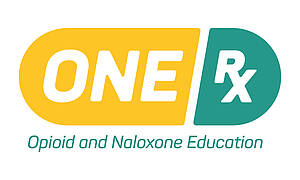
Newly published research shows a significant initial impact of the ONE Rx program to help pharmacists counsel patients about the potential for opioid misuse.
Published in the Journal of Continuing Education in Health Professions, results of the study show that after training, pharmacists registered to prescribe naloxone increased by 67 percent and the number of pharmacists reporting naloxone dispensing doubled.
Study co-authors include Drs. Heidi Eukel, Oliver Frenzel, Elizabeth Skoy, Amy Werremeyer, and Mark Strand in the North Dakota State University School of Pharmacy, and Jayme Steig, Quality Health Associates.
Among the study results:
- 77% of respondents indicated commitment to provide ONE Rx opioid risk screening and interventions to patients
- Twelve months after training, pharmacists registered to prescribe naloxone increased 67%
- Pharmacists reporting naloxone dispensing increased from 23% to 46%
- Pharmacist interventions included explaining medication take-back programs, 88.4%
- 49% discussed opioid use disorder with patients with risk factors
The Opioid and Naloxone Education (ONE Rx) continuing education program provides pharmacists the opportunity to expand their abilities and impact on the opioid crisis. An expert team designed the education modules that are free of charge for all pharmacists in North Dakota.
The ONE Rx educational modules include a framework to help pharmacists identify patients who may be at risk of opioid misuse or overdose. This innovative approach provides pharmacists participating in ONE Rx a role in prevention, unlike most interventions for the opioid crisis that occur much later than when a patient first picks up their prescription. Educational modules include patient risk assessment, role of naloxone, the disease of addiction, and additional communication strategies for patients and providers. Pharmacists who completed the continuing education screened patients and provided interventions over a 12-month period.
More information is found in the journal article Opioid Misuse and Overdose: Changes in Pharmacist Practices and Outcomes.
“The ONE Rx CE program demonstrated high-quality opioid and naloxone education to pharmacists,” said Heidi Eukel, co-author and associate professor in the NDSU School of Pharmacy. “Survey results and opioid harm reduction interventions indicate the CE resulted in sustained pharmacy practice behavior change. It’s exciting to see that the educational modules impacted not only what pharmacists learned, but also how they changed the way they served patients over 12 months.”
NDSU pharmacy faculty in the Department of Pharmacy Practice, along with the North Dakota Board of Pharmacy and North Dakota Pharmacists Association, created the robust program called ONE Rx, with education and a structured clinical intervention framework for pharmacists across North Dakota. Through the opioid and naloxone educational program, pharmacists have provided screenings for over 6,500 patients in two years.
Additional pharmacies in South Dakota, Minnesota, Iowa and Nebraska have adopted the ONE Rx program as well.
“The continuing education for pharmacists with ONE Rx provides an opportunity for pharmacists to play an integral role in opioid risk reduction in their communities,” said Eukel.
As a student-focused, land grant, research university, we serve our citizens.


